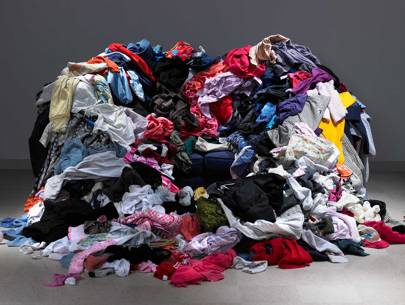“Fashion shouldn’t cost the earth,” said Mary Creagh MP, chair of the committee, today. “But the way we design, make and discard clothes has a huge environmental impact. Producing clothes requires climate-changing emissions. Every time we put on a wash, thousands of plastic fibres wash down the drain into the oceans. We don’t know where or how to recycle end-of-life clothing.”
"Fashion shouldn’t cost the earth. But the way we design, make and discard clothes has a huge environmental impact" - @MaryCreaghMP. We have launched an inquiry into the sustainability of the fashion industry.
The fashion industry has become the second most polluting industry after the oil industry, with 87 percent of fashion landfilled or incinerated every year, according to data revealed at the Copenhagen Fashion Summit. When 53 million tonnes of clothes are produced every year with manufacturing techniques that use land and water, the extraction of fossil fuels, and the emission of toxic chemicals, this is a huge problem. An even bigger one when we consider that, despite the difficulties of the high street, we have doubled the amount of clothes we produce in the last 15 years.

Many brands and manufacturers have been making motions towards supply chain transparency, particularly in the aftermath of the 2013 Rana Plaza disaster, but there needs to be a standardised level of sustainability that all retailers have to adhere to, and a standardised language that customers understand. Key to the inquiry is getting consumers to acknowledge the necessity of an “end to end” fashion system or a “circular economy” – buzzwords which simply mean that garments are kept in use for longer and then made into new products at the end of their life span.
Sustainable pioneers, such as Stella McCartney, are paving the way, but also serving up constant reminders of the “appalling” fact that one percent of fashion on our planet is recycled. “It’s not a great place where we are at,” she said in May this year. “Honestly, it takes up more time in my company than creating product… [we’re] just being decent human beings and having a decent label practice, [but] it’s a big problem because there are very few people that are doing that.”
If parliament can help change our current "more is more" mindset to become more mindful, it's a step in the right direction towards protecting our planet and our future.

No comments:
Post a Comment